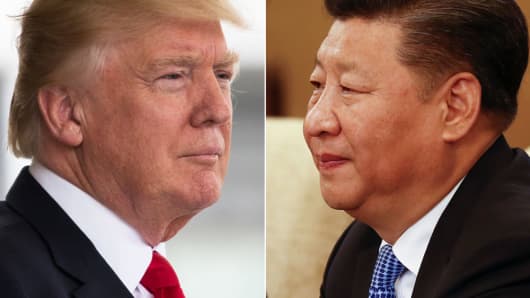As the United States and China inch closer to a full-fledged trade war, economists and investors worry about worst-case scenarios that could impact the global economy — and America. The war of words keeps getting harsher. China announced Wednesday that it may put tariffs on $50 billion worth of U.S. goods in retaliation against the Trump administration's plan for imposing 25 percent duties on Chinese imports. Markets were sent spinning, falling by more than 1 percent and then rebounding later in the day, while everyone is now wondering what might come next.
If this trade fight does escalate, then more tariffs could be slapped on more goods. But China could fire back in a far more significant way: selling a large chunk of the $1.17 trillion of U.S. treasury bonds it holds.
Over the last several years, China has bought scores of treasury bonds partly because it has U.S. dollars it needs to spend. Just like any investor, China wants to put some of the greenbacks it's made off its exports to the United States into safe investments, and there's nothing safer than U.S. bonds.
For the most part, China, which has owned around $1 trillion of U.S. bonds for several years, has held on to these assets, collecting billions in interest payments. It did reduce some of those assets in late 2016 and early 2017 to help offset an increase in the yuan, but it's already bought back much of what it sold.
More from Global Investing Hot Spots:
Tesla and China trade war
Reaching for yield in this bond sector may be risky
If China did decide to sell off those bonds in a fit of rage aimed at President Donald Trump, then it could cause major havoc on international markets, said Jeff Mills, co-chief investment strategist at PNC Financial Services Group. "It's certainly something they could do," he said.
The biggest impact would be on interest rates and bond prices, he says. If China floods the market with treasuries, and the supply of U.S. bonds spikes, then fixed income prices would fall and yields would rise. If yields climb then it would become more expensive for U.S. companies and consumers to borrow and that would cause the U.S. economy to slow down.



